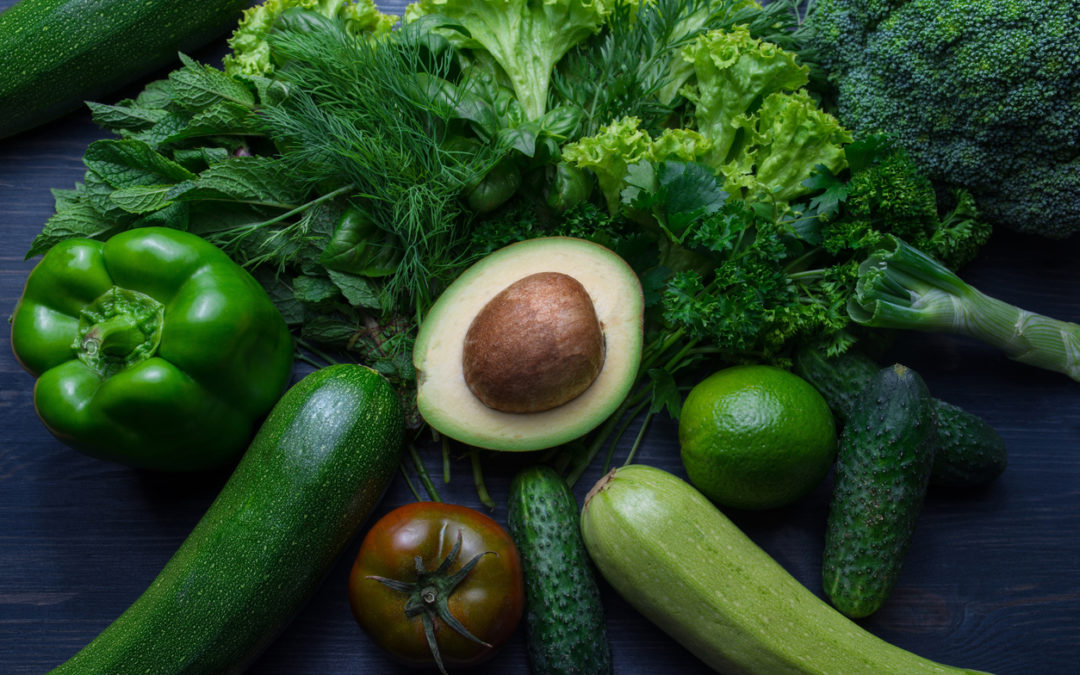The cold, dry weather of winter can really be a problem for skin throughout the winter months. Mixed with the dry heat from the furnace, your skin can be left flakey, red, and lackluster. On top of using water-based moisturizers, drinking plenty of water, and gently exfoliating, there are simple dietary changes that you can incorporate to improve the health and appearance of your skin. Below are 6 foods that contribute to skin health that can be added to your diet to help fight skin issues year round.
Blueberries – In addition to showing benefits for brain and heart health, blueberries are rich in antioxidants, which help to prevent cellular damage caused by free radicals. Prepare blueberries in salads, smoothies, on top of yogurt, or on their own as a light snack.
Dark chocolate – Dark chocolate that contains 70% or higher cacao is similarly high in antioxidants. It also contains plenty of magnesium, which promotes relaxation and is a mineral that is generally lacking in North Americans. Consume a small square of dark chocolate daily for skin health (and because it tastes good).
Avocado – Avocadoes are rich in healthy fats (monounsaturated fatty acids), antioxidants, and fiber. The cells in your body, particularly your skin, consist of two layers of fat in the cell wall. Healthy fats help to plump up the skin. Avocadoes also contain biotin, a B vitamin that acts as a helper in the breakdown and conversion of fats, carbohydrates, and proteins. This means that biotin is required for us to use these macronutrients for their intended purposes, such as skin, nail, and hair health. A half of an avocado daily is a great addition to your diet.
Red or yellow bell peppers – These peppers contain beta-carotene, which is a carotenoid that gets converted to vitamin A. Carotenoids are antioxidants and can act as a natural sunblock. Bell peppers also contain an impressive amount of vitamin C, and vitamin C is required for creating collagen. Collagen keeps skin firm.
Sweet potatoes – A ½ cup of sweet potatoes contains approximately four times the recommended dietary intake of vitamin A. Again, vitamin A is a potent antioxidant and natural sunblock.
Salmon – In addition to being rich in healthy fats, salmon contains high amounts of astaxanthin – a carotenoid and super antioxidant that gives salmon its pink colour. Astaxanthin protects against damage to DNA by decreasing C-reactive protein (CRP), diminishing inflammation, and improving blood flow[1]. Oral consumption of astaxanthin was shown to improve factors associated with younger looking skin[2]. Consider consuming salmon and other fatty fish (mackerel, sardines, herring, and trout) at least twice a week.
At Cornerstone, we have a special camera that inspects the potential sun damage, as well as the water and fat content of your skin. You can call us today to book a complimentary skin health assessment to investigate the health of your skin.
References:
[1] S.F. Lockwood, G.J. Gross, Disodium disuccinate astaxanthin (Cardax): antioxidant and antiinflammatory cardioprotection, Cardiovasc. Drug Rev. 23 (2005) 199–216.
[2] N.E. Chalyk, V.A. Klochkov, T.Y. Bandaletova, N.H. Kyle, I.M. Petyaev, Continuous astaxanthin intake reduces oxidative stress and reverses age-related morphological changes of residual skin surface components in middle-aged volunteers, Nutr. Res. N. Y. N. 48 (2017) 40–48. doi:10.1016/j.nutres.2017.10.006.

